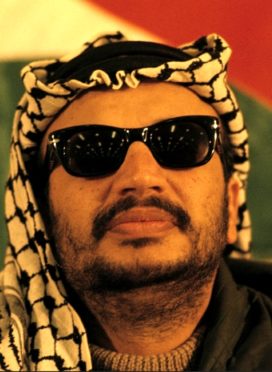Facts about Yasser Arafat
Yasser Arafat Biography
An Arab, Yasser Arafat was among those Palestinians who resisted the creation of a Jewish state in 1948.
During the 1950s and ’60 Arafat led underground military operations as the leader of the guerilla group Al Fatah, and in 1969 he was named head of the Palestine Liberation Organization (PLO).
By 1974 he was recognized as the one key spokesman for the Palestinian people.
The PLO’s attacks on Jewish citizens, most notably the killing of 11 Israeli athletes at the 1972 Munich Olympics, gave Arafat a worldwide reputation as a terrorist leader, yet in the 1980s he also managed to take on the role of a statesman willing to use diplomacy to achieve his ends.
Secret meetings in Norway with Israeli leaders Yitzhak Rabin and Shimon Peres in 1993 resulted in a peace agreement, and the three men shared the Nobel Peace Prize in 1994.
In 1996 Arafat was elected president of the Palestinian National Authority.
After further violent struggles in the region, Arafat was put under virtual house arrest in his West Bank compound by Israeli troops for more than two years.
In October of 2004 Arafat was airlifted to Paris for treatment of a blood disorder; after two weeks of confusion and rumors about his health, he died in Paris on 11 November 2004. He was succeeded by Mahmoud Abbas.
Extra credit
Before the creation of the state of Israel in 1948, Jerusalem was part of Palestine, a region created by British mandate after World War I. Arafat’s official biography listed his birthplace as Jerusalem, Palestine, but other sources list his birthplace as Cairo, Egypt; it is generally believed that Arafat listed Jerusalem to solidify his claim as a Palestinian leader.
Something in Common with Yasser Arafat
4 Good Links
- 1999 bio from the Nobel Prize website, with good detail on his early life
- Time magazine's 2004 post-mortem, with photos and related articles
- 2004 piece from the pro-Israel Middle East Quarterly charges Arafat with corruption and more
- The BBC offers copious detail on the conflict, with profiles of Arafat and other key figures

